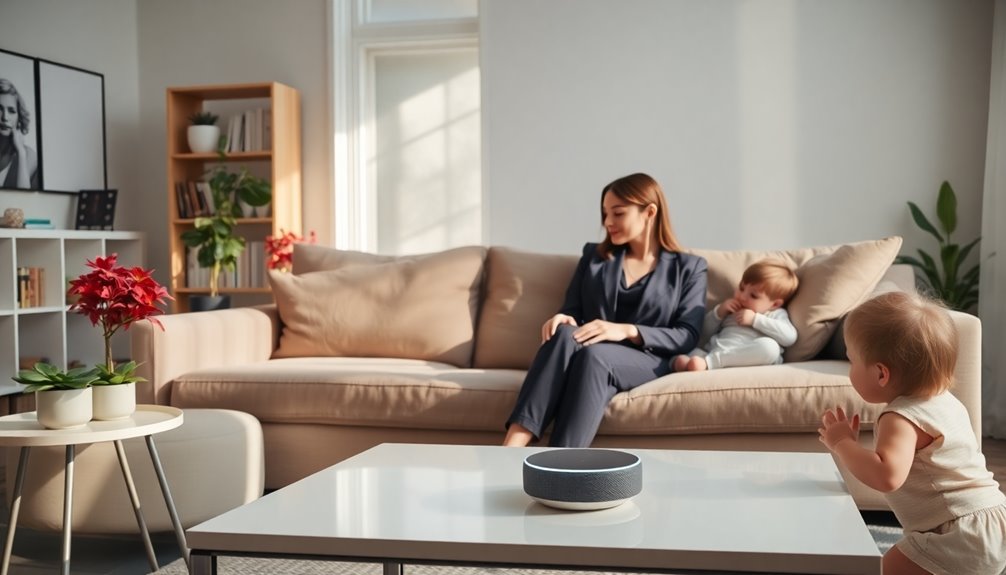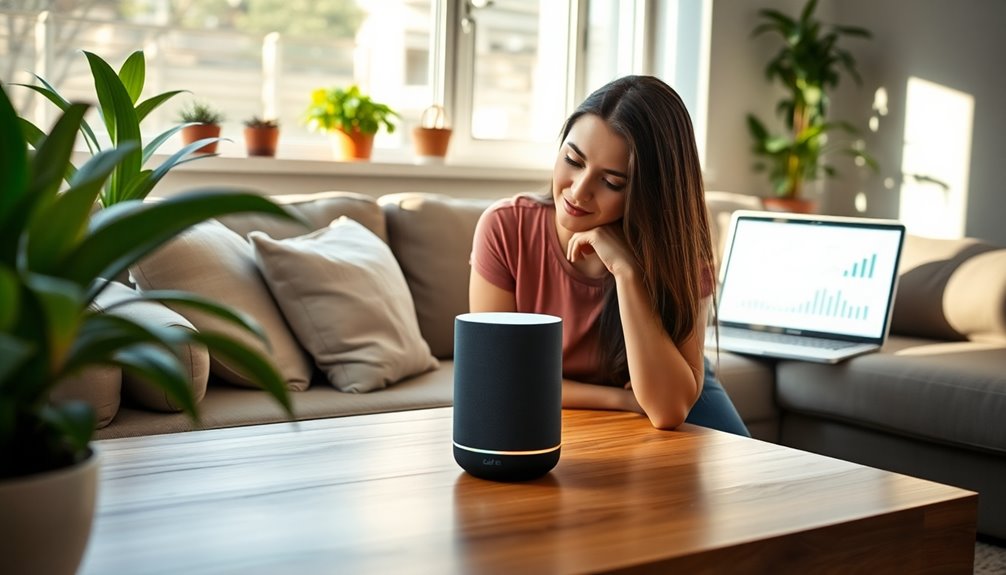You might have noticed how voice assistants are becoming a part of everyday life. A recent study shows that 60% of consumers now use these tools for various tasks, reflecting a significant behavioral shift. It's intriguing to consider how this technology is influencing not just convenience, but also the way we interact with our devices. What does this mean for the future of communication and technology in our lives?

Nearly half of Americans are expected to use voice assistants by 2025, reflecting a growing trend in technology adoption. With adoption rates climbing, you're likely among the many who've already embraced the convenience these digital helpers offer. By 2026, the number of voice assistant users in the U.S. is projected to hit 157.1 million, showcasing just how integral these tools are becoming in daily life.
Smartphones dominate the landscape, with over 88% of U.S. internet users accessing voice assistants through their devices. If you're one of them, you probably appreciate the hands-free interaction that makes multitasking easier. Whether you're cooking, driving, or simply busy with work, being able to ask your voice assistant for information or control your smart home devices without lifting a finger is a real game-changer. Smart home automation is a significant driver of adoption, highlighting how users are increasingly integrating these technologies into their daily routines.
Smart speakers, while a smaller segment at around 12%, also play a significant role in voice assistant usage. You might find it convenient to ask your smart speaker to play music or answer questions while you go about your day. Connected cars are another growing area, allowing you to utilize voice commands while keeping your focus on the road. With smart headsets also entering the mix, it seems there's no shortage of devices to engage with these digital assistants.
The reasons you might find yourself turning to voice assistants are numerous. They offer a level of convenience that's hard to beat, saving you time and effort. You may even find speaking to be a more natural form of interaction compared to typing, especially when you're in a hurry. Plus, many users, including children, enjoy the fun and ease of using voice commands.
However, it's not all sunshine and rainbows. Trust issues around privacy and concerns about accuracy can make some hesitate to fully adopt these technologies. While many consumers report satisfaction with their voice assistants, there are still complexities that can confuse users. You might wonder if your assistant's responses are as accurate as you'd like them to be.
Looking ahead, it's clear that voice assistants will play an even larger role in your life. With expectations for increased usage in the future, it's time to embrace this evolving technology and see how it can enhance your everyday experiences.










